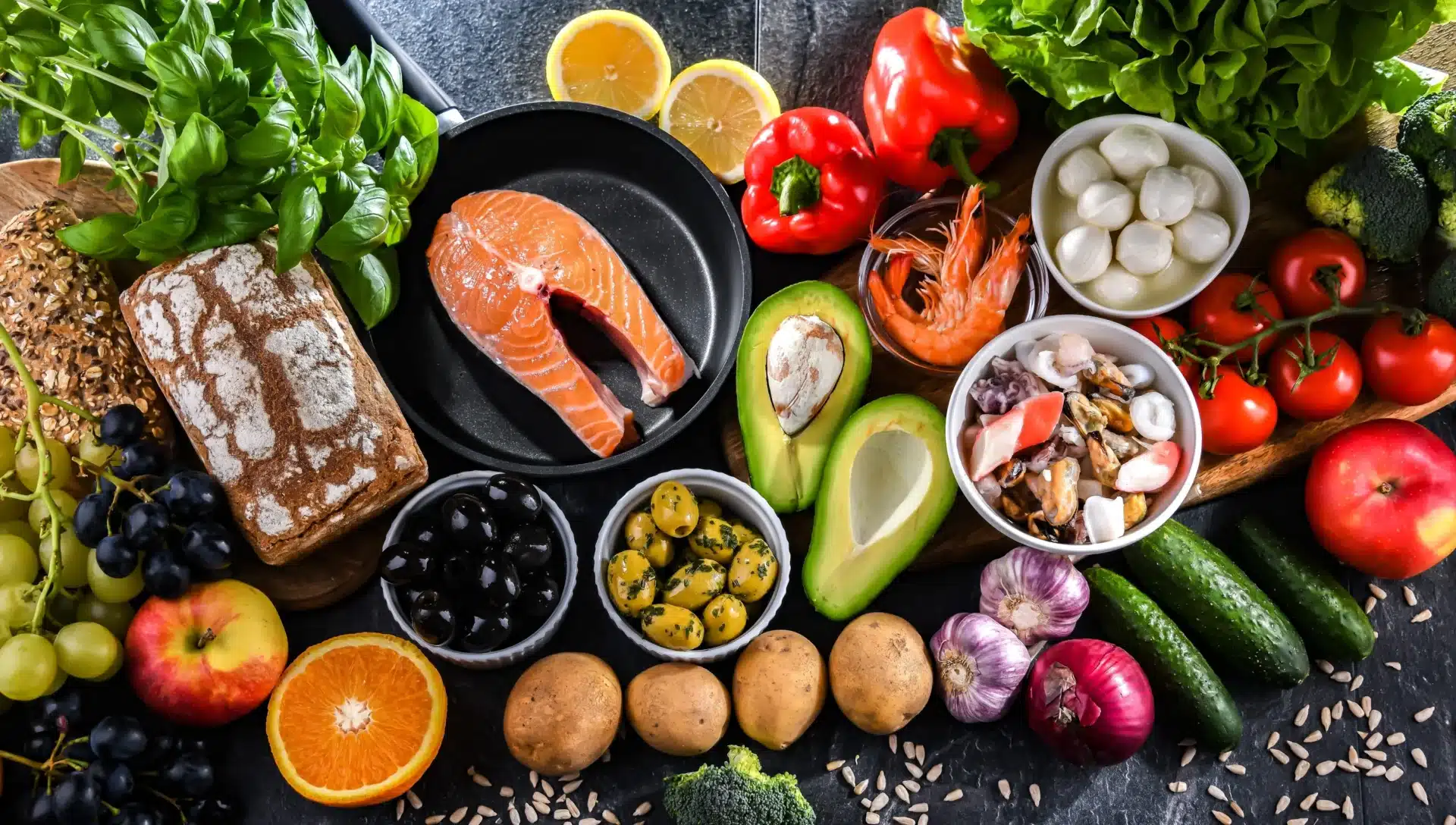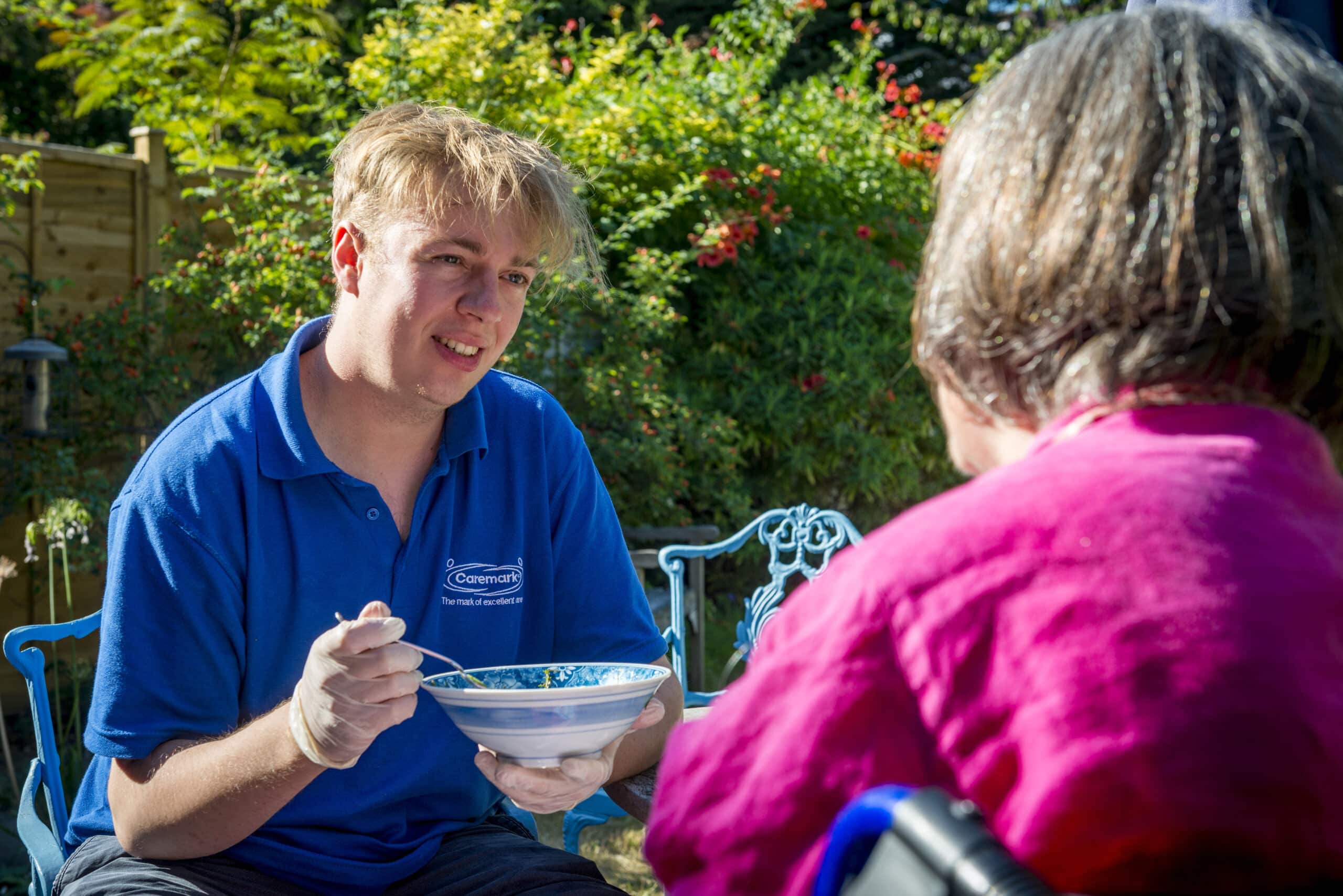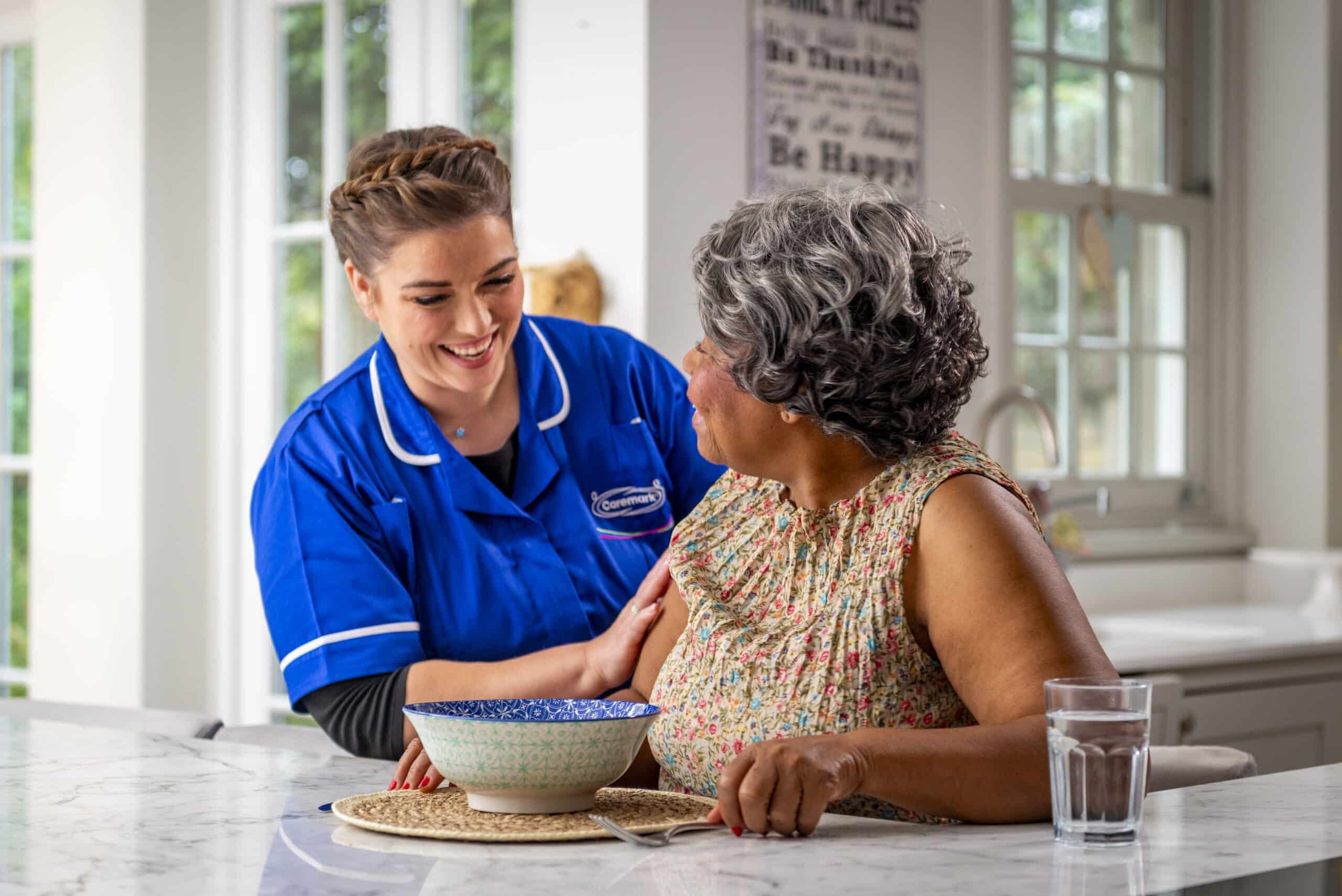6 Benefits of the Mediterranean Diet in Older People

At Caremark, we recognise the importance of good nutrition in maintaining health, activity, and independence later in life. The foods we eat can have a significant impact on our energy, mood, and long-term well-being. One eating plan that’s recognised worldwide for promoting good health, especially among older adults, is the Mediterranean diet. Understanding the benefits of the Mediterranean diet in older people is key, as it is rooted in the traditional eating habits of countries such as Greece, Italy, and Spain. This balanced, flavourful approach to food offers a range of benefits that can help older people thrive.
What is the Mediterranean Diet?
The Mediterranean diet is less about strict rules and more about enjoying wholesome, fresh foods in a balanced way. It’s rich in fruits, vegetables, whole grains, beans, nuts, seeds, and olive oil. Fish and seafood are eaten regularly, while poultry, eggs, and dairy appear in moderation. Red meat and processed foods are kept to a minimum. It’s not just the ingredients that make this diet so special, it’s also the attitude towards food. Meals are often enjoyed slowly, shared with others, and focused on quality rather than quantity. This emphasis on enjoyment and community encourages people to live well and savour everyday moments.

6 Benefits of the Mediterranean Diet in Older People
There are countless advantages to different diets, but below you can see the 6 benefits of the Mediterranean diet in older people:
Supports Heart Health
One of the biggest advantages of the Mediterranean diet is its positive effect on heart health. Olive oil, oily fish, and nuts are all packed with healthy fats that can help reduce “bad” cholesterol and support good circulation. Combined with plenty of fibre-rich vegetables and whole grains, these foods contribute to a healthier heart. This is something that becomes even more important as we get older.
Helps Maintain a Healthy Weight
The Mediterranean diet focuses on natural, unprocessed foods, so, it’s lower in refined sugars and saturated fats. This makes it easier to maintain a healthy weight without feeling deprived. The fibre from vegetables, beans, and whole grains also helps keep you feeling fuller for longer.
Promotes Brain Health
Research suggests that the Mediterranean diet may play a role in protecting the brain as we age. Foods like berries, leafy greens, olive oil, and fish contain antioxidants and omega-3 fatty acids. They support brain function and may help reduce the risk of cognitive decline. Eating this way can help keep the mind sharp and memory strong, something we all value as we grow older.
Boosts Mood and Emotional Wellbeing
What we eat can influence our emotions. The Mediterranean diet includes nutrients that support brain chemistry and mood balance. This includes vitamin B12, folate, and magnesium. The emphasis on social meals and relaxed eating also promotes emotional wellbeing and a sense of connection.
Supports Strong Bones and Joints
Foods such as yoghurt, cheese, and leafy greens provide calcium and vitamin D, which are essential for maintaining strong bones. Meanwhile, the anti-inflammatory properties of olive oil and oily fish can help reduce stiffness and joint discomfort. This makes the Mediterranean diet beneficial for older adults who want to stay active.
Encourages Longevity and Vitality
People living in Mediterranean regions are often among the world’s longest-living populations. With its emphasis on variety, balance, and enjoyment, this approach supports the body in many ways. It helps older people feel more energetic, sleep better, and enjoy a higher quality of life.

How to Start Eating the Mediterranean Way
Adopting a Mediterranean-style diet doesn’t have to mean a complete overhaul of your kitchen cupboards. Small, gradual changes can make a big difference.
- Swapping butter or margarine for olive oil when cooking or dressing salads.
- Adding a handful of nuts or seeds to breakfast or as a healthy snack.
- Choosing fish instead of red meat a few times each week, especially oily fish like salmon or sardines.
- Filling your plate with colourful vegetables, aiming for variety and freshness.
- Opting for whole grains such as brown rice, quinoa, or wholemeal bread.
- Enjoying fruit for dessert instead of sugary puddings.
- Taking time to enjoy your meals by sitting down, savouring the flavours, and, when possible, sharing food with others.
These small steps can lead to lasting habits that make healthy eating enjoyable, sustainable, and full of flavour.
Benefits of Mediterranean Diet in Older People & Living Well with Caremark
Good nutrition is a key part of living a happy and independent life. At Caremark, we support people across the UK to maintain healthy routines. This could mean preparing balanced meals, helping with shopping, or providing friendly company at mealtimes. Eating well is about more than food alone; it’s about nurturing body and mind. By embracing the Mediterranean diet, older people can enjoy both the pleasures of good eating and the benefits of a healthy lifestyle. However, they can also experience the long-term benefits of a healthier lifestyle.

How Caremark Can Help
At Caremark, we provide high-quality, professional care that empowers individuals to live their best lives. Our kind and trustworthy care assistants are key to the tailored care we provide. Our customers are at the heart of everything we do, so we strive to support every one of their needs in managing their conditions.
Would you like to learn more about the care services we provide? Get in touch and discover how we can support you or someone you love. From live-in care to companionship care, we are here to help.